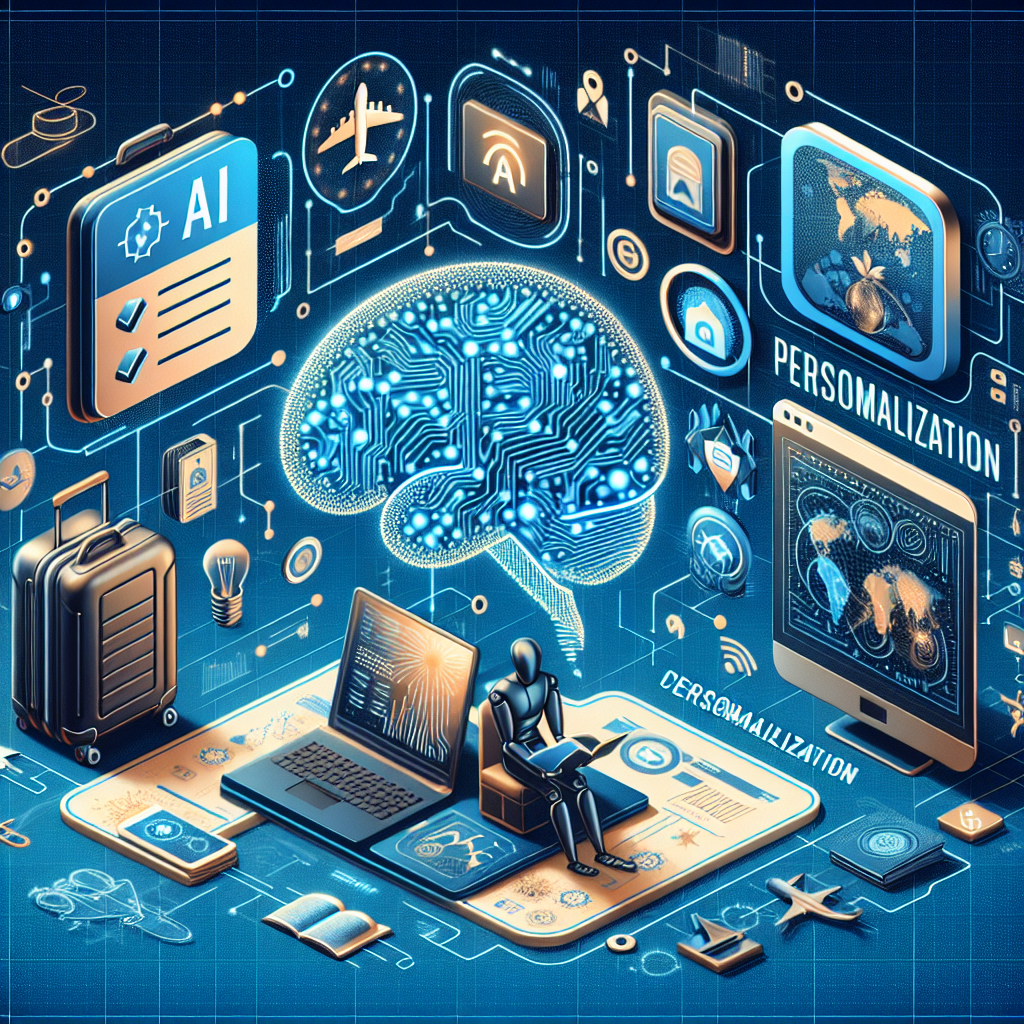In today’s fast-paced world, technology plays a crucial role in almost every aspect of our lives, including travel. Artificial Intelligence (AI) is revolutionizing the way we plan and experience our trips, making them more personalized and seamless than ever before. From booking flights and hotels to recommending restaurants and activities, AI-driven solutions are transforming the travel industry and providing travelers with tailored experiences that suit their preferences and needs.
One of the key benefits of using AI in travel is the ability to gather and analyze vast amounts of data to create personalized recommendations. By leveraging machine learning algorithms, travel companies can collect information about a traveler’s past behavior, preferences, and interests to offer customized suggestions for their upcoming trip. For example, AI can analyze a traveler’s search history and booking patterns to recommend hotels in a specific price range or restaurants that serve their favorite cuisine.
AI-driven solutions can also enhance the booking process by streamlining the search and reservation process. Virtual assistants powered by AI technology can help travelers find the best deals on flights and accommodations, as well as provide real-time updates on their travel itinerary. These virtual assistants can also offer personalized recommendations based on the traveler’s preferences, such as suggesting activities or attractions that match their interests.
Furthermore, AI can improve the overall travel experience by providing personalized recommendations for things to do and see at the destination. By analyzing data from social media, online reviews, and other sources, AI can suggest activities, events, and attractions that are tailored to the traveler’s interests. This personalized approach can help travelers make the most of their trip and discover hidden gems that they may not have otherwise found.
In addition to enhancing the travel experience for individuals, AI-driven solutions can also benefit travel companies by improving customer service and increasing efficiency. By automating repetitive tasks such as booking confirmations, itinerary updates, and customer inquiries, AI can free up human agents to focus on more complex and value-added tasks. This can lead to cost savings for travel companies and improved customer satisfaction for travelers.
Despite the many benefits of AI-driven solutions in travel, there are also some challenges and concerns that need to be addressed. One of the main concerns is data privacy and security, as AI systems rely on vast amounts of personal data to make personalized recommendations. Travel companies must ensure that they are complying with data protection regulations and implementing robust security measures to protect their customers’ information.
Another challenge is the potential for bias in AI algorithms, which can lead to unfair or discriminatory outcomes. Travel companies must be aware of the risks of bias in AI systems and take steps to mitigate them, such as ensuring that their algorithms are transparent and accountable.
Overall, harnessing AI-driven solutions for personalized travel experiences has the potential to revolutionize the way we plan and experience our trips. By leveraging the power of AI technology, travel companies can offer tailored recommendations, streamlined booking processes, and enhanced customer service to create a truly personalized and seamless travel experience for every traveler.
FAQs:
Q: How does AI technology personalize travel experiences?
A: AI technology personalizes travel experiences by analyzing data about a traveler’s preferences, interests, and behavior to offer customized recommendations for flights, accommodations, activities, and attractions.
Q: Are AI-driven solutions secure for travelers?
A: Travel companies must ensure that their AI-driven solutions comply with data protection regulations and implement robust security measures to protect travelers’ personal information.
Q: How can AI improve customer service in the travel industry?
A: AI can improve customer service in the travel industry by automating repetitive tasks such as booking confirmations, itinerary updates, and customer inquiries, freeing up human agents to focus on more complex and value-added tasks.
Q: What are some of the challenges of using AI in travel?
A: Some of the challenges of using AI in travel include data privacy and security concerns, the risk of bias in AI algorithms, and the need for transparency and accountability in AI systems.

